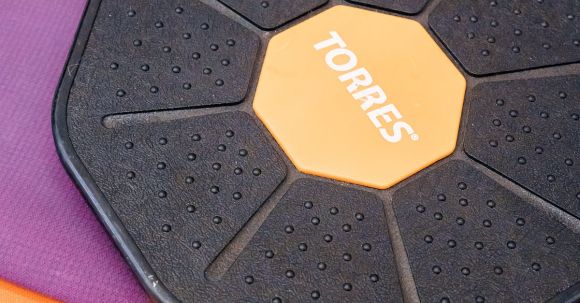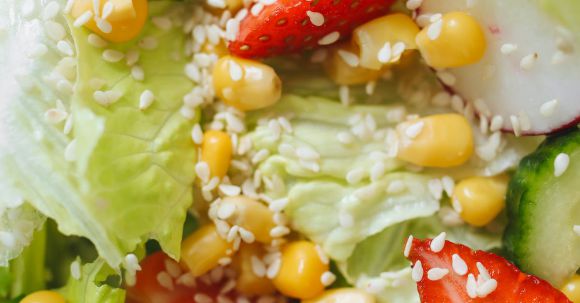Maintaining motivation for home workouts can be challenging, especially when the monotony of a routine sets in. However, with a little creativity and variety, you can keep your fitness journey exciting and stay motivated. In this article, we will explore some ways to spice up your home workouts and keep the fire burning.
Author: fit-on
Yoga and meditation are both ancient practices that have been revered for their ability to promote physical, mental, and spiritual well-being. While yoga primarily focuses on the physical aspect, meditation delves into the realm of the mind. However, when combined, these practices can create a harmonious and transformative experience. In this article, we will explore how you can incorporate meditation into your yoga practice to deepen your connection with yourself and enhance the benefits of your yoga sessions.
Understanding the Purpose of Meditation in Yoga
Before diving into the specifics, it is important to understand the purpose of meditation in the context of yoga. Meditation is a practice that involves training the mind to focus and redirect thoughts. It aims to cultivate mindfulness and awareness, allowing you to observe your thoughts and feelings without judgment. By incorporating meditation into your yoga practice, you can heighten your present-moment awareness and cultivate a sense of inner peace and tranquility.Setting the Intention
To begin incorporating meditation into your yoga practice, start by setting an intention. Before each session, take a few moments to reflect on what you hope to achieve through your practice. This can be something as simple as cultivating gratitude, finding inner peace, or connecting with your breath. By setting an intention, you create a sense of purpose and direction for your practice, allowing you to stay focused and present throughout.Starting with Breath Awareness
A powerful way to ease into meditation during your yoga practice is by focusing on your breath. Begin by bringing your attention to your breath as you move through each yoga posture. Notice the sensation of the breath entering and leaving your body, and try to synchronize your movements with your breath. This breath awareness practice helps anchor you in the present moment, allowing you to deepen your connection with your body and the present experience.Integrating Mindfulness in Movement
As you progress in your practice, you can begin to integrate mindfulness into your movements. Instead of simply going through the motions, bring your full attention to each posture. Notice the sensations in your body, the alignment of your limbs, and the subtle shifts in energy. By practicing mindfulness, you cultivate a deep sense of presence and awareness, enabling you to fully experience the benefits of each yoga posture.Dedicating Time for Stillness
In addition to incorporating meditation into the active aspects of your yoga practice, it is essential to dedicate time for stillness. After completing your yoga postures, find a comfortable seated position and shift your focus inward. Close your eyes and bring your attention to your breath, allowing it to guide you into a state of deep relaxation. As thoughts arise, simply observe them without judgment and let them pass. This practice of stillness and introspection allows you to delve deeper into your meditation practice and experience profound states of inner calm.Closing Thoughts
Incorporating meditation into your yoga practice is a powerful way to enhance the benefits of both practices. By setting an intention, focusing on your breath, integrating mindfulness into your movements, and dedicating time for stillness, you can create a transformative and holistic experience. Remember, the key is to approach your practice with an open mind and a willingness to explore the depths of your being. Through consistent practice, you will cultivate a greater sense of self-awareness, inner peace, and overall well-being. So, take a deep breath, step onto your mat, and embark on this beautiful journey of self-discovery and growth.
Building a strong core is essential for overall strength and stability. One popular challenge that targets the abs is the Fit on Abs Challenge. If you're looking to nail this challenge and develop a solid core, here are some tips to help you succeed.
Understanding the Fit on Abs Challenge
Before diving into the tips, it's important to understand what the Fit on Abs Challenge entails. This challenge typically involves a series of exercises that focus on the abdominal muscles, such as crunches, planks, leg raises, and Russian twists. The goal is to perform these exercises consistently over a set period, gradually increasing the intensity and duration as you progress.Start Slow and Focus on Form
When starting the Fit on Abs Challenge, it's crucial to begin at a level that matches your current fitness level. Don't be tempted to jump in at an advanced level if you're a beginner. Starting slow allows your body to adapt and prevents injuries. Focus on maintaining proper form throughout each exercise. This means engaging the core muscles and avoiding excessive strain on the neck and back. Quality over quantity is key when it comes to strengthening your abs.Consistency is Key
To see progress in the Fit on Abs Challenge, consistency is key. Set a schedule and stick to it. Whether it's three times a week or every day, make sure you dedicate time to completing the challenge. Consistency will help build endurance and improve your overall core strength.Mix Up Your Exercises
While the Fit on Abs Challenge typically includes a specific set of exercises, don't be afraid to mix things up. Add variety to your routine by incorporating different ab exercises or modifying existing ones. This not only prevents boredom but also targets different areas of the core, ensuring a well-rounded workout.Include Cardio and Full-Body Workouts
While the Fit on Abs Challenge primarily focuses on the core, it's important to incorporate cardio and full-body workouts into your routine. Cardio exercises such as running, cycling, or swimming help burn excess fat, revealing those abdominal muscles you're working so hard to strengthen. Full-body workouts engage multiple muscle groups, including the core, resulting in a more balanced physique.Listen to Your Body and Rest
Pushing yourself is important, but it's equally essential to listen to your body and incorporate rest days into your routine. Overtraining can lead to injuries and hinder progress. Rest allows your muscles to recover and grow stronger. Don't be afraid to take a day off when needed.Stay Hydrated and Eat a Balanced Diet
Proper nutrition plays a significant role in achieving a strong core. Stay hydrated throughout the day, as dehydration can negatively impact performance and recovery. Additionally, consume a balanced diet that includes lean proteins, whole grains, fruits, and vegetables. Fueling your body with the right nutrients will enhance your overall fitness journey.Track Your Progress
Lastly, track your progress throughout the Fit on Abs Challenge. Keep a log of the exercises you complete, the duration, and any modifications or improvements you make along the way. Not only does this provide motivation, but it also allows you to visually see your progress and make adjustments as needed. In conclusion, nailing the Fit on Abs Challenge for a strong core requires starting slow, maintaining proper form, being consistent, mixing up exercises, including cardio and full-body workouts, listening to your body, staying hydrated, eating a balanced diet, and tracking your progress. By following these tips, you'll be well on your way to a stronger, more defined core. So, lace up your shoes, grab a mat, and get ready to conquer the Fit on Abs Challenge!
In today's fast-paced world, it can be challenging to maintain a healthy and balanced diet. However, creating a diet plan that is both balanced and nutritious is essential for overall well-being. A balanced diet can provide the right amount of nutrients, vitamins, and minerals necessary for the body to function optimally. In this article, we will explore some practical tips on how to create a balanced and nutritious diet plan.
Understanding the Basics of a Balanced Diet
Before diving into the specifics, it is important to understand what constitutes a balanced diet. A balanced diet consists of a variety of foods from all food groups, including fruits, vegetables, whole grains, lean proteins, and healthy fats. Each food group provides different essential nutrients necessary for the body's growth and maintenance.Planning Your Meals
To create a balanced and nutritious diet plan, it is crucial to plan your meals in advance. Start by making a list of the foods you enjoy from each food group. This will give you a foundation to build upon. Aim to include a variety of colors, flavors, and textures in your meals to keep things interesting and enjoyable.Focusing on Fruits and Vegetables
Fruits and vegetables are an essential part of a balanced diet as they are rich in vitamins, minerals, and fiber. Aim to include a variety of fruits and vegetables in your meals to ensure you get a wide range of nutrients. Opt for fresh, seasonal produce whenever possible, as they tend to be more nutritious.Including Whole Grains
Whole grains, such as brown rice, quinoa, and whole wheat bread, are an excellent source of fiber and other essential nutrients. They provide sustained energy and promote healthy digestion. Replace refined grains with whole grains in your meals to increase your intake of essential nutrients.Choosing Lean Proteins
Protein is crucial for the growth and repair of tissues in the body. Opt for lean sources of protein, such as chicken, turkey, fish, tofu, and legumes. These foods are low in saturated fats and high in essential amino acids. Include a variety of protein sources in your meals to ensure you get all the necessary nutrients.Incorporating Healthy Fats
Contrary to popular belief, not all fats are bad for you. Healthy fats, such as those found in avocados, nuts, seeds, and olive oil, are essential for brain health and the absorption of fat-soluble vitamins. Include a moderate amount of healthy fats in your diet plan to reap their numerous benefits.Avoiding Excess Sugar and Salt
While a little sugar and salt in moderation is okay, excessive consumption can lead to various health problems. Limit your intake of sugary drinks, processed snacks, and foods high in sodium. Instead, opt for natural sweeteners like honey or maple syrup and use herbs and spices to flavor your meals.Staying Hydrated
Water is essential for maintaining overall health and well-being. Aim to drink at least eight glasses of water per day. You can also include herbal teas and infused water to add variety and flavor. Avoid sugary drinks and excessive caffeine, as they can dehydrate the body. In conclusion, creating a balanced and nutritious diet plan requires careful planning and consideration. By including a variety of foods from all food groups, focusing on fruits and vegetables, choosing whole grains and lean proteins, incorporating healthy fats, avoiding excess sugar and salt, and staying hydrated, you can create a diet plan that promotes optimal health and well-being. Remember, small changes can make a big difference, so start by making one healthy choice at a time.
We all know that losing weight can be a challenging journey. It requires dedication, discipline, and a lot of hard work. But what if there was a way to make it easier? Enter Fit on - the revolutionary fitness app that not only helps you shed those extra pounds but also boosts your confidence along the way. In this article, we will explore how Fit on can transform your weight loss journey and help you become the best version of yourself.
Finding the Right Workout for You
One of the key features of Fit on is its wide range of workout programs tailored to meet your specific needs and goals. With options ranging from high-intensity interval training (HIIT) to yoga and meditation, you can find a workout that suits your preferences and fitness level. This variety ensures that you never get bored and stay motivated throughout your weight loss journey.Tracking Your Progress
Tracking your progress is crucial when it comes to losing weight. Fit on provides a user-friendly interface that allows you to easily log your workouts, monitor your calorie intake, and track your progress over time. This feature not only helps you stay accountable but also provides valuable insights into your fitness journey. Seeing your progress on a regular basis can significantly boost your confidence and motivate you to keep going.Building a Supportive Community
Losing weight can sometimes feel like a lonely process, but with Fit on, you never have to go through it alone. The app provides a platform where you can connect and interact with like-minded individuals who are on the same journey as you. This supportive community can offer guidance, share tips and tricks, and provide the motivation you need to stay on track. Surrounding yourself with people who understand your struggles and successes can make a world of difference in boosting your confidence and keeping you motivated.Setting Realistic Goals
Setting realistic goals is essential for any weight loss journey. Fit on allows you to set personalized goals based on your current fitness level and desired outcomes. Whether you want to lose a certain amount of weight or improve your overall fitness, the app helps you break down your goals into manageable milestones. By setting achievable goals, you set yourself up for success and build confidence along the way.Making Fitness a Daily Habit
Consistency is key when it comes to losing weight and boosting your confidence. Fit on helps you make fitness a daily habit by offering workout reminders and scheduling features. These features ensure that you stay on track and prioritize your health and well-being. By making fitness a part of your daily routine, you not only lose weight but also build a strong sense of self-discipline and confidence.Embracing a Healthy Lifestyle
Weight loss is not just about exercise; it's also about adopting a healthy lifestyle. Fit on provides nutrition guidance and meal planning features to help you make healthier choices. By fueling your body with nutritious foods, you not only support your weight loss goals but also enhance your overall well-being. Embracing a healthy lifestyle not only boosts your confidence but also sets a foundation for long-term success. In conclusion, Fit on is not just a fitness app; it's a transformative tool that can help you lose weight and boost your confidence. With its wide range of workout programs, progress tracking features, supportive community, goal-setting capabilities, and emphasis on a healthy lifestyle, Fit on provides everything you need to embark on a successful weight loss journey. So why wait? Start your journey with Fit on today and discover the confident, healthier version of yourself.
Are you ready to step out of your comfort zone and face your fears head-on? If so, the Fit on Heights Challenge is the perfect opportunity for you. This exhilarating adventure will push you to your limits, testing not only your physical strength but also your mental fortitude. So, gear up and get ready to conquer your fear!
Pushing Boundaries: The Fit on Heights Challenge
The Fit on Heights Challenge is not for the faint of heart. It is designed to challenge participants both mentally and physically, providing an opportunity to conquer their fear of heights while pushing their limits. This unique challenge combines elements of rock climbing, zip-lining, and high-altitude obstacle courses, creating an adrenaline-pumping experience like no other.Overcoming Fear: Face Your Demons
For many people, the fear of heights can be paralyzing. It can prevent them from enjoying outdoor activities, exploring new places, or even pursuing their dreams. But the Fit on Heights Challenge is here to change that. By facing your fear head-on, you will gain a sense of empowerment and liberation that will spill over into other areas of your life.Building Mental Resilience: Mind over Matter
The Fit on Heights Challenge is not just about physical strength; it is also a test of mental resilience. As you navigate through the towering obstacles and dizzying heights, you will learn to quiet the voice of doubt in your head and focus on the task at hand. This mental strength will not only help you conquer the challenge but will also serve you well in other aspects of your life.Team Spirit: Support and Encouragement
Entering the Fit on Heights Challenge is not a solitary endeavor. You will be surrounded by a supportive community of like-minded individuals who are all striving to overcome their fears. The camaraderie and encouragement within the group will provide an extra boost of motivation and support when you need it the most.Stepping Outside Your Comfort Zone: Growth and Transformation
Stepping outside of your comfort zone is where true growth and transformation happen. The Fit on Heights Challenge will push you to your limits, forcing you to confront your fears and break through self-imposed limitations. As you conquer each obstacle, you will gain a newfound confidence and a belief in your own abilities that will extend far beyond the challenge itself.Embracing the Adventure: Thrills and Excitement
The Fit on Heights Challenge is not for the faint of heart, but for those who crave adventure and seek to push their boundaries. The thrill of soaring through the air on a zip-line or scaling a towering rock face will leave you exhilarated and craving more. Embrace the excitement and let the adrenaline rush fuel your determination to conquer your fear.Conclusion: Conquer Your Fear, Unlock Your Potential
The Fit on Heights Challenge offers a life-changing opportunity to conquer your fear of heights and unlock your true potential. By pushing your boundaries and facing your fears, you will tap into a well of strength and resilience that you never knew existed. So, gear up, embrace the adventure, and let the Fit on Heights Challenge be the catalyst for your personal growth and transformation. It's time to conquer your fear and reach new heights!
When it comes to building strength and increasing muscle mass, two common terms that often come up are strength training and powerlifting. While both activities involve lifting weights, there are some key differences between the two. In this article, we will explore the distinctions between strength training and powerlifting.
Understanding Strength Training
Strength training is a broad term that encompasses a variety of exercises and techniques aimed at increasing overall strength. The primary goal of strength training is to improve muscular strength and endurance. This type of training involves using resistance, such as free weights or weight machines, to target specific muscle groups.Types of Strength Training Exercises
Strength training exercises can be categorized into two main types: compound exercises and isolation exercises. Compound exercises are multi-joint movements that engage multiple muscle groups simultaneously. Examples of compound exercises include squats, deadlifts, and bench presses. On the other hand, isolation exercises target specific muscle groups and involve single-joint movements. Bicep curls and tricep extensions are examples of isolation exercises.Benefits of Strength Training
Strength training offers numerous benefits for individuals of all fitness levels. In addition to increasing muscle strength and endurance, it can also improve bone density, enhance overall physical performance, and boost metabolism. Moreover, strength training has been shown to have a positive impact on mental health, reducing symptoms of anxiety and depression.Understanding Powerlifting
Powerlifting is a competitive sport that focuses on lifting as much weight as possible in three specific lifts: the squat, bench press, and deadlift. Unlike strength training, which aims to improve overall strength, powerlifting is centered around achieving maximum strength in these three specific exercises.The Three Powerlifting Lifts
The squat is a lower-body exercise that targets the quadriceps, hamstrings, and glutes. The bench press primarily works the chest, shoulders, and triceps, while the deadlift engages muscles throughout the entire body, including the back, legs, and core.Rules and Scoring in Powerlifting
In powerlifting competitions, participants have three attempts to lift as much weight as possible in each of the three lifts. The heaviest successful lift in each category is added together to determine the lifter's total score. Powerlifting is a highly competitive sport that requires dedicated training and strict adherence to technique.Key Differences between Strength Training and Powerlifting
While both strength training and powerlifting involve lifting weights, there are some key differences between the two. Strength training is more focused on overall strength and endurance, whereas powerlifting is a specific sport with a focus on maximum strength in three specific lifts. Another difference is that strength training incorporates a wider variety of exercises, including compound and isolation movements, to target specific muscle groups. Powerlifting, on the other hand, revolves around the squat, bench press, and deadlift, with the goal of lifting as much weight as possible in these three exercises.Conclusion
In summary, strength training and powerlifting are two distinct approaches to weightlifting. Strength training is a broad term encompassing various exercises aimed at improving overall strength and endurance. Powerlifting, on the other hand, is a competitive sport that focuses on achieving maximum strength in three specific lifts. Both activities offer unique benefits and require dedicated training to achieve desired results. Whether you choose to engage in strength training or pursue powerlifting as a sport, incorporating weightlifting into your fitness routine can have a positive impact on your overall health and well-being.
Achieving optimal fat burn during your workouts is a goal that many people have. Whether you are looking to lose weight or simply improve your fitness level, understanding how to optimize your workouts can make a significant difference in your results. In this article, we will explore some effective strategies to help you maximize fat burn during your workouts.
Set the Right Intensity
One of the key factors in optimizing your workouts for maximum fat burn is setting the right intensity level. High-intensity interval training (HIIT) has been proven to be highly effective in burning fat. This involves alternating between periods of high-intensity exercise and short periods of rest or lower intensity exercise. By pushing yourself to your maximum capacity during the high-intensity intervals, you can increase your heart rate and stimulate fat burning.Incorporate Resistance Training
While cardio exercises are great for burning calories, incorporating resistance training into your workouts is essential for maximizing fat burn. Resistance training helps to build lean muscle mass, which increases your metabolism and allows your body to burn more fat even at rest. Include exercises such as weightlifting, bodyweight exercises, or using resistance bands in your routine to target different muscle groups and maximize fat burn.Focus on Compound Movements
When it comes to optimizing fat burn, compound movements are your best friend. Compound exercises involve multiple muscle groups and joints, which require more energy and burn more calories. Examples of compound movements include squats, deadlifts, lunges, push-ups, and pull-ups. By incorporating these exercises into your workouts, you can engage multiple muscle groups simultaneously and increase your calorie burn.Interval Training with Cardio
In addition to incorporating resistance training, interval training with cardio exercises is another effective way to optimize fat burn. Instead of maintaining a steady pace throughout your cardio session, try alternating between high-intensity bursts and recovery periods. This could involve sprinting for 30 seconds followed by a one-minute recovery jog, or cycling at maximum effort for one minute followed by a two-minute leisurely ride. Interval training keeps your body guessing and increases your calorie burn.Avoid Overtraining
While it may be tempting to push yourself to the limit every day, overtraining can actually hinder your fat burn goals. Giving your body adequate time to rest and recover is essential for optimal fat burn. Overtraining can lead to muscle breakdown and increased cortisol levels, which can inhibit fat burning. Aim for a balanced workout routine that includes rest days and listen to your body's signals. If you feel excessively fatigued or experience prolonged muscle soreness, take a break and allow your body to recover.Stay Hydrated and Fuel Up Properly
Hydration and proper nutrition play a crucial role in optimizing your workouts for fat burn. Drinking enough water throughout the day helps to regulate your body's temperature, transport nutrients, and eliminate waste products. When it comes to fueling up, focus on consuming a balanced diet that includes lean proteins, healthy fats, and complex carbohydrates. Eating a well-rounded meal or snack before your workout can provide your body with the energy it needs to perform at its best and maximize fat burn. In conclusion, optimizing your workouts for maximum fat burn requires a strategic approach. By setting the right intensity, incorporating resistance training and compound movements, and incorporating interval training with cardio exercises, you can effectively increase your calorie burn and stimulate fat loss. Remember to listen to your body, stay hydrated, and fuel up properly to support your fat burn goals. With consistency and dedication, you can achieve the results you desire.
In today's fast-paced world, maintaining a healthy lifestyle can be challenging. With busy schedules and limited time, finding ways to improve your stamina may seem like a daunting task. However, the good news is that you can increase your stamina right from the comfort of your own home with simple and effective workout routines. In this article, we will explore some home workouts that can help you boost your stamina and improve your overall fitness level.
High-Intensity Interval Training (HIIT)
One of the most efficient ways to increase your stamina is through high-intensity interval training, commonly known as HIIT. This workout involves alternating between short bursts of intense exercise and brief periods of rest. HIIT workouts can be done using a variety of exercises such as running, jumping jacks, or burpees. The key is to push yourself to your maximum capacity during the intense intervals, which helps to improve cardiovascular endurance and increase stamina.Circuit Training
Circuit training is another effective home workout that can enhance your stamina. This workout involves performing a series of exercises back-to-back with little to no rest in between. The exercises can be a combination of cardio and strength training, targeting different muscle groups. By continuously moving from one exercise to the next, you not only improve your stamina but also burn calories and build strength.Bodyweight Exercises
Don't underestimate the power of bodyweight exercises when it comes to increasing stamina. Exercises like push-ups, squats, lunges, and planks can all be done at home without any equipment. These exercises engage multiple muscle groups simultaneously, challenging your cardiovascular system and improving your stamina. As you become more comfortable, you can increase the intensity by adding variations or increasing the number of repetitions.Cardiovascular Workouts
Cardiovascular workouts are essential for improving stamina and endurance. Activities like jogging, jumping rope, or dancing can be easily incorporated into your home workout routine. Aim for at least 30 minutes of continuous aerobic exercise to get your heart rate up and improve your lung capacity. To make it more challenging, try interval training by alternating between high-intensity and moderate-intensity cardio exercises.Progressive Overload
To see continuous improvements in your stamina, it's important to gradually increase the intensity and duration of your workouts. This concept, known as progressive overload, ensures that your body is constantly challenged and adapts to the increased demands. You can achieve progressive overload by increasing the number of repetitions, adding resistance, or extending the duration of your workouts over time.Proper Recovery
Along with the workouts, it's crucial to prioritize recovery to allow your body to adapt and grow stronger. Make sure to incorporate rest days into your routine to give your muscles time to repair and rebuild. Additionally, getting enough sleep, staying hydrated, and consuming a balanced diet are all essential for optimal recovery and improved stamina. Incorporating these home workouts into your routine can help you increase your stamina and improve your overall fitness level. Remember to start slowly and gradually increase the intensity to prevent injuries. Consistency is key, so make a commitment to yourself and stick to your workout schedule. With dedication and perseverance, you'll soon notice significant improvements in your stamina, allowing you to tackle daily tasks with ease and enjoy an active lifestyle. So, lace up your shoes, put on some energizing music, and get ready to take your stamina to the next level with home workouts!
When it comes to cooking, there are several techniques that can be used to prepare delicious and nutritious meals. Two popular methods are grilling and frying. Both techniques have their own unique benefits and drawbacks, and understanding these can help you make healthier choices in the kitchen. In this article, we will compare grilling and frying, exploring their impact on the nutritional value of the food and their overall health benefits.









